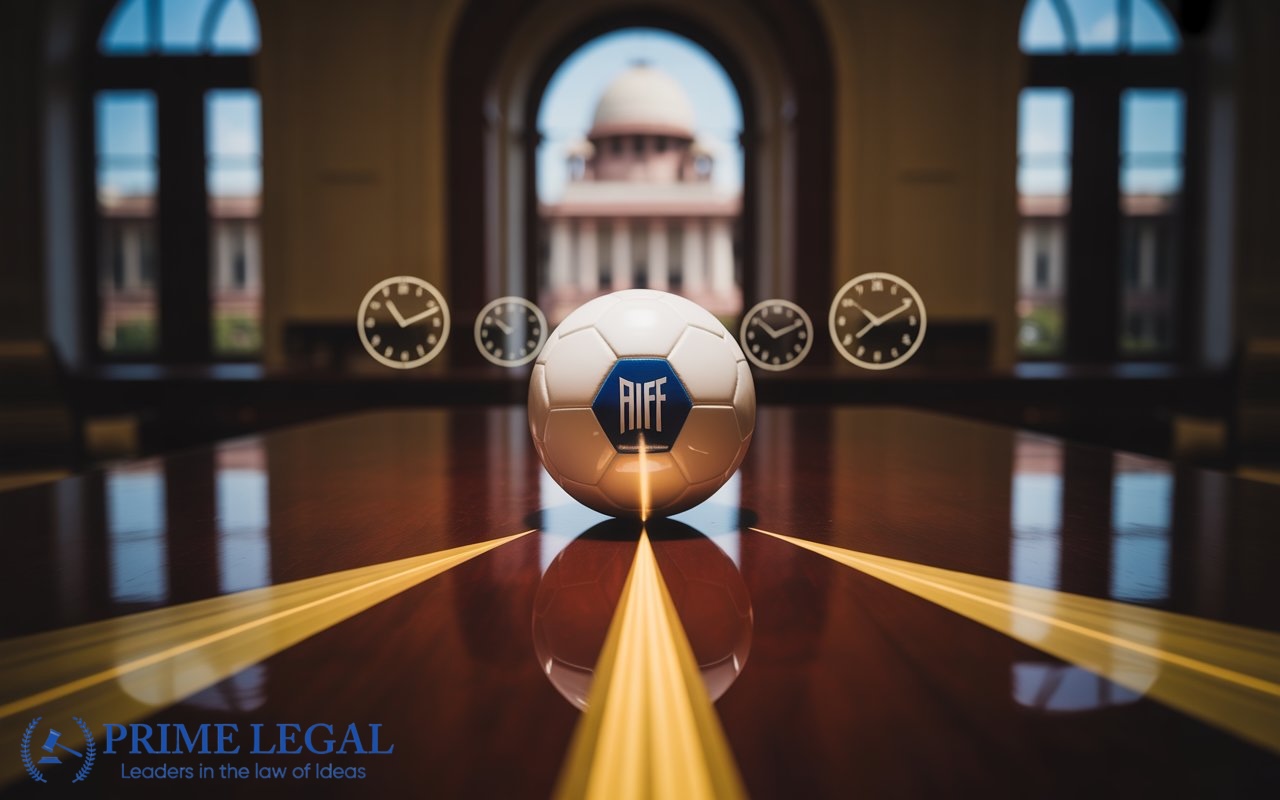INTRODUCTION-
The Supreme Court of India, in the case of All India Football Federation v. Rahul Mehra, SLP (C) Nos. 30748-30749 of 2017, has directed the All India Football Federation (AIFF) to forward its new Constitution within four weeks, on September 19, 2025. Reforms and an updated Constitution had been delayed and, in the opinion of the court, had inhibited the functioning of the AIFF. The court also believed the delay and failure to implement reforms was at odds with previous directives for reforms that would promote transparency, accountability, and democratic governance of the sports federations.
BACKGROUND-
The litigation arose out of issues surrounding governance defaults, and the absence of democratic elections, in addition to AIFF’s failure to adopt a Constitution in accordance with the requirements of the National Sports Code and the recommendations of the Committee of Administrators (CoA). The advocate Rahul Mehra, who was acting as petitioner, drew attention to the fact that the AIFF had been allowed to carry on, without putting into place necessary reforms, as repeatedly directed by both the Delhi High Court and the Supreme Court. The Supreme Court had previously allowed the AIFF multiple chances to finalize and adopt a new Constitution, however with no success. Following the urging of the court, and stated concern regarding the diminishing credibility of football administration in India, there was still no action or implementation of the reform measures contemplated in the CoA’s report.
KEY POINTS-
- Constitutional Adoption: Within four weeks, the Supreme Court has ordered the AIFF to fully and unconditionally adopt the new Constitution.
- Compliance with the National Sports Code: The Court stated that the recommended Constitution must be in a manner compliant with the National Sports Code, including terms of tenure, age caps and voting rights to players.
- Consequences of Non-Compliance: The bench stated that non-compliance with this order would necessitate some measure from the courts, and in its stead, would suspend AIFF, or its functions, through court-appointed administrators.
- Transparency and Accountability: The Court repeated that good governance is at the centre of sport. As they are performing functions of a public nature, sport governing bodies, and their functions, must be democratic, and accountable to players and all stakeholders.
- CoA’s Role and Monitoring. The Court noted that the CoA’s recommendations had been fulfilled, and implementation of its recommendations is now the complete responsibility of the AIFF, which will be monitored by the Court.
- Respected representatives in the General Body: Adding 15 respected representatives with voting privileges won’t destabilize democracy within the AIFF, as member associations will retain approximately 62% of the power. The National Sports Code 2011 requires at least 25% of players to be represented, and it does not forbid having more.
- Qualifications for respected representatives: The Court has relaxed Justice L. N. Rao’s stricter recommendation of 5 matches for men and 2 matches for women at the international level, thus allowing potential participants from all levels of retired players.
- Definition of office bearers: Although the state associations wanted only a President, Treasurer, and Secretary to be considered office bearers, the Court clarified that all elected Executive Committee members would fall within this definition because they are relevant for cooling-off and tenure or age limits.
- Disqualification of public servants: The Court updated the disqualification requirements to imprisonment conviction (see BCCI v. Cricket Assn. of Bihar (2022) 19 SCC 30). A public servant or a Minister can get elected if they have obliged of the government under the NGSA 2025 Act. The Court has also now clarified no one will be disqualified because they were in office in any other National Sports Federations (NSFs).
RECENT DEVELOPMENTS-
The Supreme Court’s ruling comes on the heels of worldwide scrutiny over India’s governance of football. FIFA has previously cautioned against third-party involvement. This ruling expedites AIFF reform and harmonization with global best practices by removing the opportunity for AIFF to put off reform. As a result, fair elections for AIFF leadership and a restructuring of AIFF’s governance consistent with domestic and international law will move forward.
CONCLUSION
The decision in All India Football Federation v. Rahul Mehra SLP (C) Nos. 30748-30749 of 2017 speaks to the judiciary’s commitment to sports governance reform in India. The court has imposed a firm four-week deadline and will not tolerate delays in respect for transparency and accountability.
“PRIME LEGAL is a full-service law firm that has won a National Award and has more than 20 years of experience in an array of sectors and practice areas. Prime legal falls into the category of best law firm, best lawyer, best family lawyer, best divorce lawyer, best divorce law firm, best criminal lawyer, best criminal law firm, best consumer lawyer, best civil lawyer.”
Written by- Anwesha Anant


